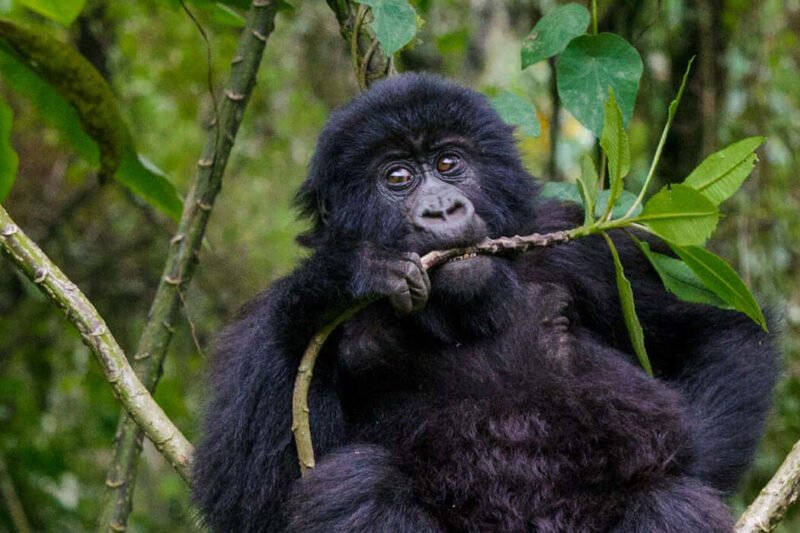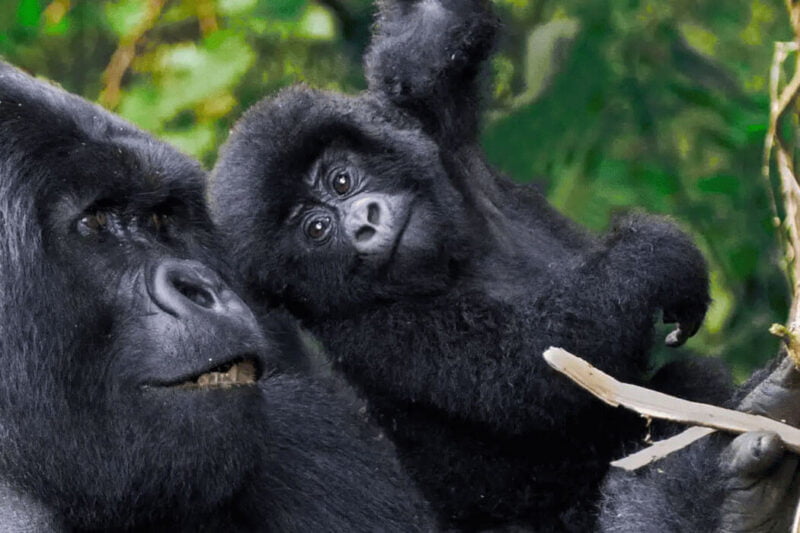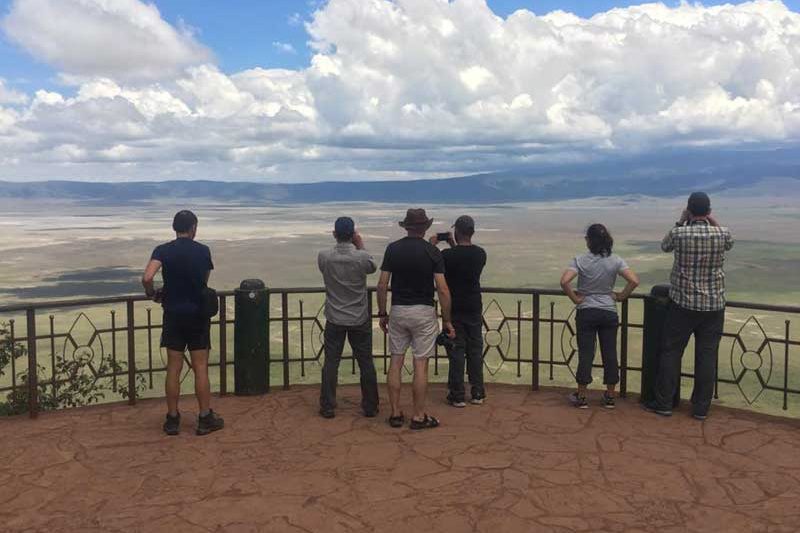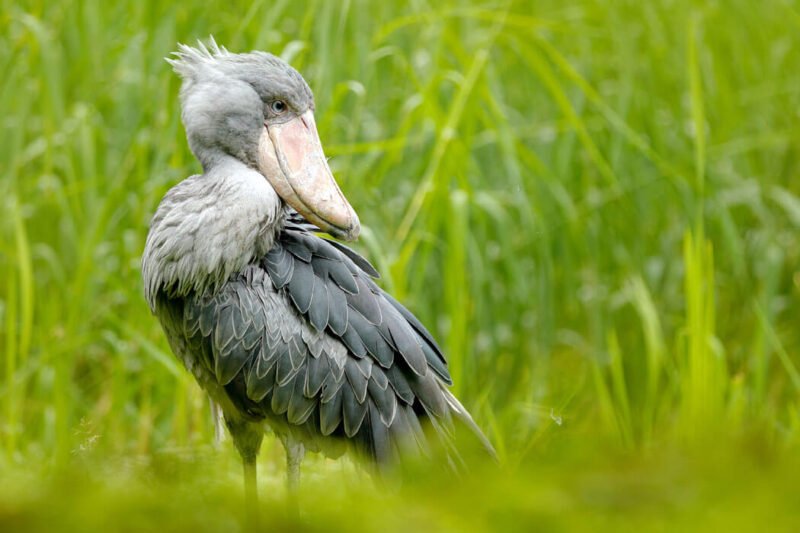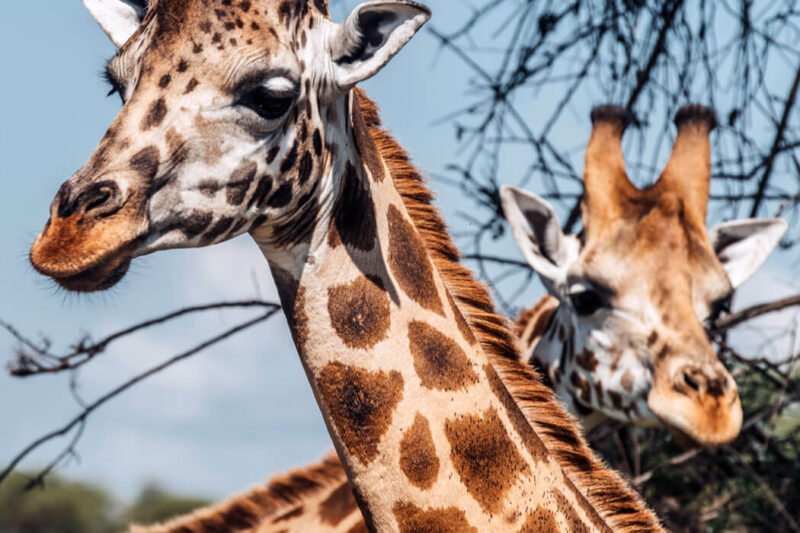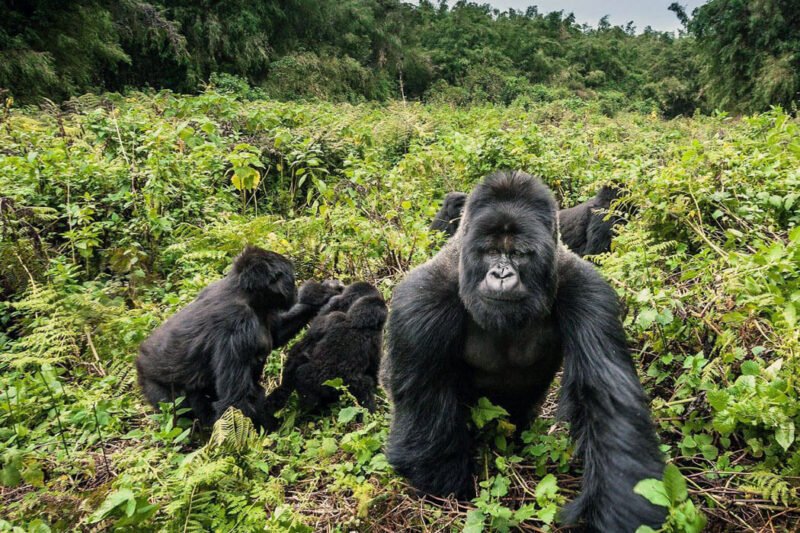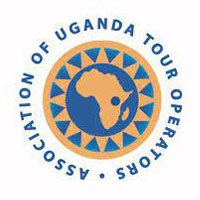A Uganda safari for women can be an exciting adventure for a girls trip or even a solo female safari. Here are 12 helpful tips to start you off.
Going to a new place can be scary and intimidating but it could be exciting, fun and full of possibilities.
Traveling to a place for the first time can be quite challenging and dreadful if you have limited information. Don’t let this hold you back, here are a few tips to help you come to terms with that upcoming holiday trip to Uganda.
For more than 10 years, we have executed many safaris all over Uganda, with thousands of people. Whether you are travelling alone, with your family (including children) or in a small group of friends, we have handled that before and we speak from firsthand experience.

These Safari tips are to help you, as the female traveler to come to terms with some of the questions on your mind.
Uganda Safari For Women
1. Climate & Seasons
Uganda has two seasons, the rainy seasons (April, May, October, November and December) and the dry seasons (January, February, March, June, July and August).
The weather is generally warm and temperatures will rarely past 30 degrees Celsius ( 86 degrees Fahrenheit) during the day. Higher altitude areas like Bwindi (where you might go for gorilla trekking) and the other mountains will be colder due to the high altitude.

While Uganda can be visited at any time of the year, we advise you to choose a season that will make your stay more comfortable. The season of your safari and the places you want to visit will determine what you should pack as far as preparing for the weather is concerned.
Your basic casual clothing and a light sweater or two are perfect for your visit. The extra adjustments are for the activities and weather.
2. Clothing.
Packing the right outfit is always vital as a woman and with being such a long way from home, you might want to come prepared for literally anything. Depending on your itinerary, you need to pack something fit for the activities you intend to partake in.
Make sure that you pack clothes which are comfortable to wear. For long drives, and game drives the road can get bumpy. A sports bra is highly recommended for this reason as it will be much more comfortable.

Modest clothing is recommended as Ugandans are generally modest in their dress code. Mini skirts and very short and revealing clothing are less practical. If you visit a place of worship, an attire that covers up so much is very necessary.
3. Shoes.
In most of the areas, simple Converse shoes or trainers will work perfectly. If you already have hiking shoes, they will do fine in most situations.
We recommend carrying shoes which you have worn and tested out and are certain of their being comfortable. Uncomfortable shoes can easily ruin your day and the safari experience.
In the event of mountain climbing or gorilla trekking where specific shoes are recommended, you will be told so by our team as you prepare. The topography and landscape in these forests are bumpy and mountainous with a lot of hiking involved, so you need sturdy footwear.
Carrying simple sandals is also recommended, for use during long drives, in towns or at the lodge. There is no need to carry high-heeled shoes for safari. You might carry them along for separate reasons, but they are not practical on your safari.
In the national parks and forests, it is recommended to wear closed shoes. This protects you from injuries such as sprinters, as well as bites from all manner of ants.

4. Attire & Colors to wear.
Tracksuits and raincoats come in handy too as you venture deeper into the rain forests, this protects you from insects, thorny bushes and unpredictable weather.
Be sure to pick out neutral colors that don’t stand out too much, after all this isn’t Hawaii, you will spend most of your time in the wild. Once again, comfort is key. We advise against tight trousers, shorts or showy tops as this tends to turn out to ruin your wild experience. You will want to wear loosely fitted and flexible attire.
Other game parks like Murchison Falls, Queen Elizabeth, Lake Mburo and Kidepo might not require much protection, you can only view the game animals from the comfort of your safari car. Your casual clothing, a hat and sunglasses should be enough.
Colors like pink, white and very light blue catch dirt very fast and that doesn’t feel great. Good color options include Khaki, beige, brown, green, grey and other colors close to these.
5. Skin Protection.
Yes, Uganda is in the equatorial region. These are new conditions for you. You will spend most of the time out in the sun and possible heat. If you are already used to equatorial conditions, just don’t worry much about this point.

As much as the hat and sunglasses will protect you, carry your sunscreen and insect repellent. Sunscreen can also be bought in Kampala on arrival, but don’t be certain of finding a very specific brand. It is recommended you carry your sunscreen from home – something you have already used and already love and trust.
Nature walks into the forests and exposes you to so many insects like mosquitoes. This is why you need an insect repellent.
6. Backpack.
Every woman needs a smaller convenient handy bag. A backpack will help in carrying toiletries, water bottles, phone charger/power bank, camera, sweater, packed lunch & snacks, sanitizer, sunscreen, and insect repellent among others.
You are spending the entire day away from your lodging area, and you want to move light but with every necessary thing, you need within arm’s reach. As part of your tour package, (this is optional) packed lunch can be prepared and distributed to you in the morning from your lodges if you plan to spend the entire day in the park.

A small backpack will be easy to carry around, tuck under the raincoat in case of rain and help you keep hydrated on that long hike. You should choose a light backpack that won’t be so much of a problem for you to carry.
Any backpack in the right size, with the right straps, will do fine. A huge backpack will tempt you into carrying more things – which makes it all heavy and a burden.
7. Health & Well being.
Generally, there are no major epidemics in Uganda but for your assurance please check the Ministry of Health for the current national status and specific regions you will be visiting. Check the Uganda Ministry of Health website. Our Safari consultant will tell you of any health risks as soon as possible.

You are required to take the yellow fever vaccination before your travel to Uganda and take prescription medicine for malaria before, during and after your visit. The Centre for Disease Control (CDC) also recommends Hepatitis A and Typhoid vaccines since they can be easily contacted through water and food.
Travel insurance can be a literal lifesaver! You a visiting a new place, taking on risky adventures deep in the game parks, white water rafting, zip-lining and all other exhilarating activities. Taking precautions is smart and vital in case anything unplanned happens.
For that ‘time of the month’, you should carry enough familiar supplies. It won’t be easy to ‘borrow’ especially when you are deep in the wilderness. In case you need any assistance, feel free to ask your guide or any staff at the lodges. Menstruation is normal and you shouldn’t feel shy about it.
Any of your regular medicine should be carried as well. This is, of course, as recommended by your doctor. Medical conditions should be communicated so that we can account for them in the way the tour runs.
8. Safety & Security.
Being a fairer gender comes with a certain percentage of worry. If you are travelling solo, ensure to check TripAdvisor for the best-rated travel and tour companies in Uganda. Reading good reviews will give you confidence in your choice. A well-trusted and professional tour operator is enough to give you great peace of mind.
Here is our simple checklist of what you should look for in a tour operator.
Correspondence with your safari planner as you make preparations should help create a connection even before the trip. There are lots of female tour guides if that is what makes you more comfortable. Game parks normally close at 6 pm giving you ample time to drive back to your lodging to freshen up and rest.
All questions you have about your safety should be raised as they come (before or during the safari) and the proper precautions will be taken. Our tour guides are professional people with many years of experience and are always ready to assist in making sure that you are safe and have the peace of mind to enjoy your safari.
9. Keep in contact with the outside world.
Your phone is your best friend. Don’t forget to carry a power bank, you don’t want to be halfway hiking Mt. Rwenzori and not capture that moment or drive past the majestic elephants in Queen Elizabeth National Park without sneaking a picture. But most importantly you want to keep in touch with people at home daily or at ascertained time frames to let them know you are doing okay.

Most lodges have free Wi-Fi that you can use to keep in touch with your loved ones. In very remote places, the WiFi might not be very strong. Our safari cars also have mobile Wi-Fi that you can use to keep in touch with the world. If you prefer to get a local Ugandan Sim card our guide will help you get one from the many providers.
All in all, there are many ways for you to keep in touch with your people while on safari. Take a look at our detailed article about keeping in touch while on safari.
10. Money & Foreign exchange.
Pay in advance with your selected tour company/guide for important things like Hotel booking and securing game park permits. You can read our booking terms to understand the payment commitments in full detail.
This will help you sail smoothly from one activity to another without wasting any precious time. Carry with you any important documents in case you might be required to identify yourself.
With the help of your tour guide, you can exchange your money for local currency (Ugandan shillings) to use for small tips and buying of souvenirs. Foreign exchange rates are not fixed and change from time to time.

Credit cards are not widely used especially in smaller business centers. Major international banks will accept debit card transactions.
As for keeping your trip within a certain budget, we (at Exclusive African Safaris) can create for you a customized itinerary of your interests, that is within your budget and schedule. There are some smart ways in which you can lower your safari costs without sacrificing the wonderful experience.
Take a look at our article about the ways you can save money on your safari
11. Culture, Language and People.
Uganda is a very culturally diverse country with over 40 ethnic sub-cultures with each group speaking different languages (dialects), and having different customs and traditions.
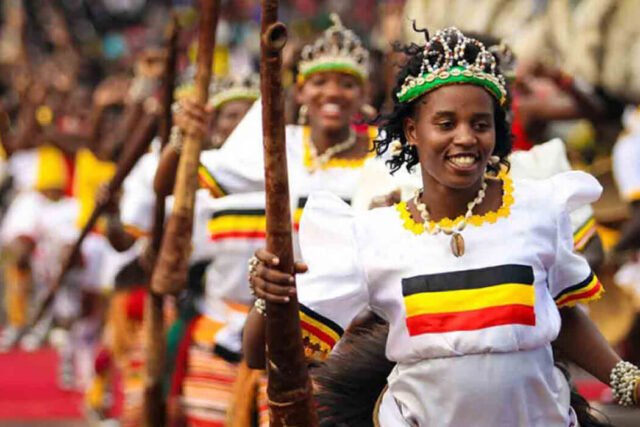
English is the national language with Swahili coming in second, most of the staff at the tour sites you’ll visit and all the places in between are fluent in English so communication won’t be a problem. For non-English speaking visitors, early arrangements can be made for a guide who speaks your native language.
Generally, the people are warm and welcoming. Learning a little bit of the local languages from your tour guide for a little small talk with the locals will always bring smiles. Part of the reasons you are travelling is to experience new ways of living, so embrace it and learn a thing or two from Ugandans.
12. Foods and drinks.
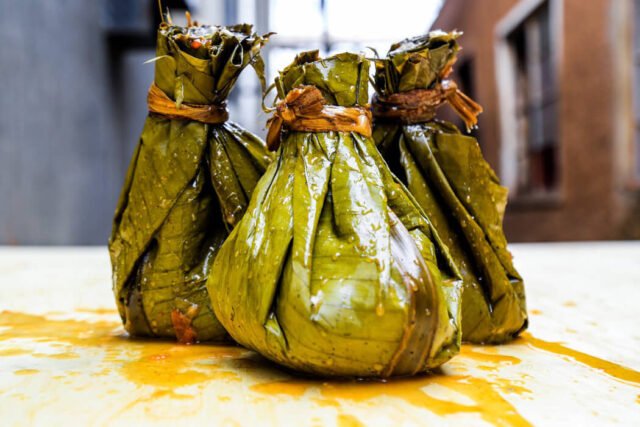
You don’t have to worry about carrying foodstuffs all the way. Most of the lodges and hotels around the game parks provide continental cuisines, however, use this opportunity to try out our original Ugandan delicacies like luwombo, matooke, chapatis and Rolex among others.
You can find all sorts of drinks ranging from soft drinks, fresh juice and wines to hard liquor and locally made traditional drinks.
Conclusion
With the right tour guide, you can have the vacation of your dreams with minimum hurdles. Doing your research is important to help you get the feel of what to expect and prepare adequately for your trip. This is why we have taken the time to share our expert advice with you.
We know Uganda and also enjoy sharing it with you. Whether you are planning your first African Safari, or you are planning a solo trip to check off items on that bucket list, we believe that we are the team to make that dream vacation exceptional.
Tell us what sort of safari you want, and when you want it via our contact page. We will work closely with you to plan and execute it just the way you want.

